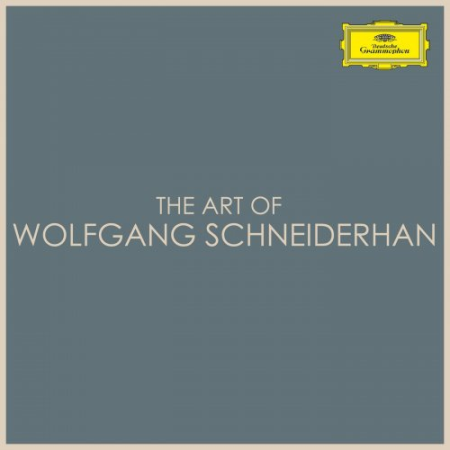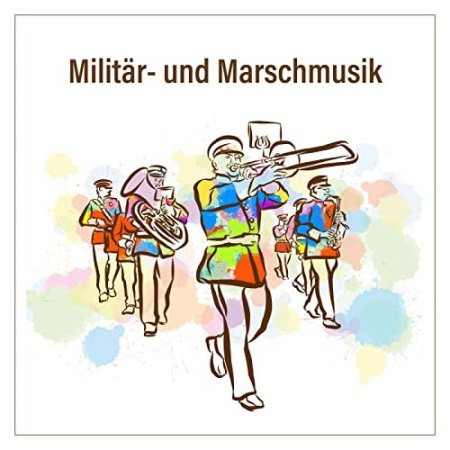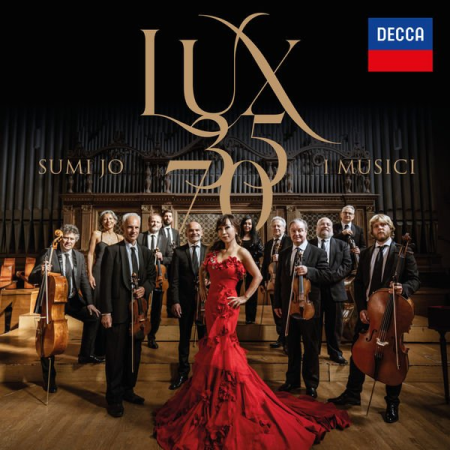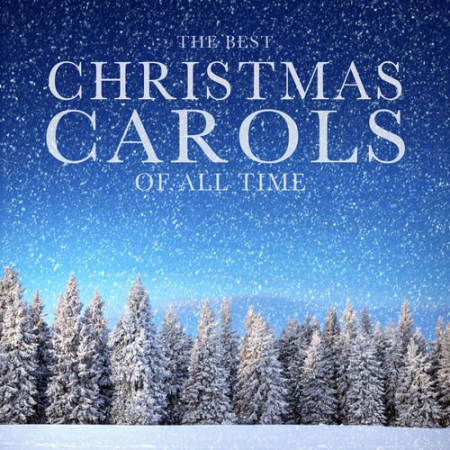Herbert von Karajan - Best of Herbert von Karajan (2022)
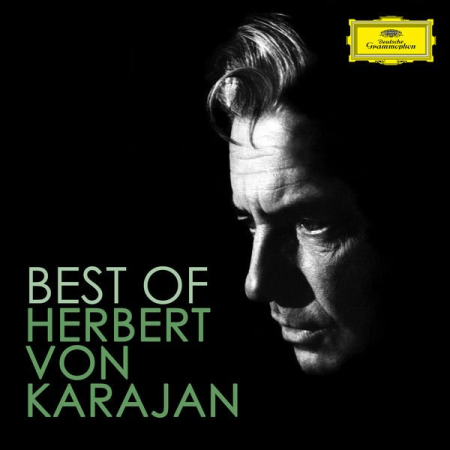
FLAC (tracks) / MP3 320 kbps | Classical | 12h 2 min | 3.1 / 1.6 GB
Herbert von Karajan was the most renowned conductor to emerge from Europe in the post-World War II era – and through fortuitous timing throughout his career, and in spite of controversy that dogged his early years, he was the most recorded conductor of the 20th century, and is likely to remain one of the most visible (and biggest-selling) conductors well into the 21st century. Born in Salzburg and descended from a family of Greek origin with deep roots in Austria – including scholars and physicians in Vienna and Salzburg – he was a music prodigy, playing the piano at three and playing his first recital a year later.
He received encouragement in his teens to shift his focus from the piano to the podium, and the experience of hearing Toscanini conduct on a visit to Vienna possessed him to follow that path. Toscanini and – a great irony – Wilhelm Furtwangler became his two idols among conductors; Karajan's teachers included the renowned Viennese conductor (and one Bruckner student) Franz Schalk. He got his first musical post in 1928 – at age 20 – at the Ulm City Theater, initially as chorusmaster and later as conductor, and over the next seven years he learned how to lead an orchestra from the ground up, serving as coach and every other capacity common to a small but busy musical berth. With the rise of the Nazi Party in Germany (which Karajan joined in 1933) and the positions that opened up with the pug of Jewish and part-Jewish musicians from all posts, Karajan saw an opportunity to advance rapidly on a bigger stage than any available in Austria – he moved his career to Germany in 1935, and became the youngest man in the country to hold a music director's position when he was appointed to the job at Aachen. He was not overtly political, however, and gladly accepted an invitation from Bruno Walter – perhaps the most prominent Jewish conductor to have been forced out of Germany – to conduct Wagner's Tristan und Isolde at the Vienna State Opera. From 1938 through 1942, he conducted the Berlin State Opera, and that same year he made his debut with the Berlin Philharmonic Orchestra. In 1941, he accepted the appointment as music director of the Berlin State Opera. Karajan found himself in an awkward but prominent position in Germany during the Nazi era.
His approach to conducting – his demanding rehearsals and his precision, even in dealing with such august bodies as the string section of the Berlin Philharmonic – and his intense personality, coupled with bracing, exciting musical results, earned him the admiration of Adolf Hitler. Additionally, his avoidance of any public displays of resistance to Nazi ideology made him a favorite of the Nazi cultural officials as a counterweight to Wilhelm Furtwangler, the most renowned conductor in the German-speaking world but also a fiercely independent voice, who was known to regard the Nazi Party officials around him with disdain and dismissiveness. It soon became clear that the government was intent on playing Karajan off against Furtwangler, using the younger conductor to subtly pressure the older man and prick his understandably outsized ego. And Karajan gained the quietly repeated nickname of "Hitler's favorite." How much he did to encourage or engender this "fandom" – beyond pursuing excellence at the podium – is questionable, and it should be pointed out that septuagenarian composer Franz Lehar enjoyed similar admiration from the Nazi dictator, despite his being apolitical and also having a Jewish wife. Ironically, Karajan found himself in a somewhat similar situation when he married a woman of Jewish descent, Anita Guetermann, in 1942; after that, he was out of favor with the party as well. Karajan made his recording debut in 1938, at age 30, and those early recordings, including his first Beethoven symphony (No. 7) and some Wagner preludes, as well as symphonies by Mozart, Tchaikovsky, and Dvorak, are of significant acad interest, as are his war recordings.
But Karajan's major career on record didn't really b until after World War II in Vienna, when he met producer Walter L. Although Karajan wasn't able to conduct in public because of his activities in Germany during the war – he was "denazified" officially until 1947 – L, as representative of a privately owned business (EMI Records), was able to arrange sessions with the Vienna Philharmonic. Those recordings, done during a when musicians in occupied Vienna needed to work just to raise their food rations to a subsistence level – which included the Beethoven Eighth and Ninth symphonies, among other works – had a quality and an urgency that were bracing to listeners at the , and they were still being reissued, in audiophile remastered editions, four decades later, in 2005 and 2006. Karajan's career ascent was stymied in the decade after the end of the war by his rivalry with Furtwangler, who would not let him near either the Berlin or the Vienna Philharmonic orchestras. Instead, he took the leadership of the Vienna Symphony, and also became the principal conductor of the Philharmonia Orchestra.
It was with the Philharmonia, for EMI, that Karajan's recorded legacy grew astronomically in the late '40s and the first half of the '50s. Karajan's denazification and his appointment to the Philharmonia coincided with the advent of magnetic tape recording in England (though EMI was slow to adopt the new system) and the LP record; he was also more open to the concept of recording than Furtwangler or any of his older conducting rivals, who tended to regard making records as an unpleasant adjunct to a music career. Where Furtwangler, Erich Kleiber, Hans Knappertsbusch, etc., kept their recording activities to a minimum, Karajan reveled in the act of recording – he made dozens of records across those seven years, of repertoire rag from Bach to Vaughan Williams, including operatic works, from Mozart to Johann Strauss and Richard Strauss that have never been equaled, not even by his own subsequent efforts. He also cut his first complete Beethoven symphonic cycle, which straddled the mono and stereo eras – the First through Seventh and the Ninth were in mono, but the Eighth was in stereo. The Beethoven cycle was also an illustration of Karajan's mindset – Karajan had never performed the Fourth Symphony in concert, and it would never have occurred to Furtwangler, Kleiber, et al., to record a work that they'd never had in their concert repertoire, but Karajan simply did the Fourth for the first for the cycle.
That series of recordings was also notable for the vision of Beethoven's symphonies that they presented, resplendent in a lush string tone, bursting tension, and energy that oozed out of every bowing and note. Virtually all of his recordings from the 1950s, whether in mono or stereo, retain exceptional luster and richness, owing to Walter L's production and the work of the EMI eeering staff, and continue to sell well in the 21st century. From the second half of the 1950s onward much of Karajan's activity – apart from occasional forays to RCA Victor and Decca/London, and a short return to EMI at the outset of the 1970s – was centered on the Deutsche Grammophon label, where the lion's share of his Berlin Philharmonic recordings would be made and released. From the advent of the stereo era onward, as his recordings gained him an ever-widening audience around the world, he would become among the busiest conductors in the studio in the entire world, and also one of the first to avail himself fully of the newest developments in air travel, jetting around the world to meet commitments and also learning to fly himself. Karajan in the late '50s and 1960s seemed as "new world" in his habits as the men he succeeded had seemed "old world." He re-recorded all of his key repertoire, from Beethoven to Schubert, more than once throughout the 1960s and 1970s, including a new cycle of the former's nine symphonies in each of the those decades and once more in the 1980s, and he extended himself more deeply into the classical era, with the symphonies of Haydn, and into the Baroque period with Bach and Handel (and even such crowd-pleasing pieces as the Albinoni Adagio and the Pachelbel Canon in D), and to the post-Romantic and modern eras with the orchestral works of Berg and Webern – he was superb at the latter two, less so with Haydn, Bach, Handel, et al. It was almost a necessity to find these other areas, however, as Karajan's recording commitments multiplied; by the end of the 1970s, he had passed Leopold Stokowski – the earliest major conductor to embrace the phonograph record, and practically a one-man recording industry – as the most recorded conductor in history. Among his few "blind spots" among major Romantic composers was Gustav Mahler, whose music didn't become part of his repertoire until very late in his career – although when he did embrace Mahler, the results were most impressive. Karajan's career timing was fortuitous in other areas as well.
With the advent of the home video era, there were two major bodies of his video performances waiting to fill that demand. Karajan's appearances on television dated back to the end of the 1950s, and his broadcasts from 1965 into the mid-'70s were distributed by Unitel, which later made them available on videocassette, laserdisc, and DVD. From the end of the 1970s, however, all of Karajan's video work was done through his own production company, Telemondial, which later licensed them to Sony for release commercially. Ironically, many of these were among his least-favored and controversial works critically – too many of the Telemondial performances were more like music videos, with hours spent getting the sections of the orchestra looking right, from the correct angle, and synchronizing that shot up with a recording that was already made. With a few notable exceptions, such as the actual live performances in front of an audience at the Vienna New Year's concerts, most viewers dismiss these "documents" as artificial and totally the opposite of what a concert is supposed to be; they were about visual perfection rather than performance, and that seemed to characterize many of his late-career efforts in music. Additionally, during the final 15 years of his life, Karajan engendered some resentment from critics and fellow musicians for his rapidly escalating fees, which led the way to similar demands from other artists and helped to turn the economics of classical concerts into something resembling major-league baseball. Karajan also played a key role in the development of the compact disc format, lending his work and his pres to its rollout in 1981 – it was also reportedly at his insistence that the original intended running of the CD, 60 minutes, was pushed to 68 minutes, using the running of a typical Beethoven Symphony No. 9 as a benchmark. At the of his death in 1989, he had completed yet another Beethoven cycle and was bning to redo many key works in the digital format; his last recording was of the Bruckner Seventh Symphony with the Vienna Philharmonic. Oddly enough, for all of his renown, he was not the most honored conductor of his , at least in the United States – Sir Georg Solti earned more Grammy Awards – but he was, along with American Leonard Bernstein, one of the two most well-known conductors in the world. And even the timing of his death was perfect, in that there was no slowing of the number of releases of his work – CD conversions of work from the 1940s, 1950s (especially limate versions of live opera recordings, and in particular those with Maria Callas), and 1960s have filled release lists and still fill the racks of music stores more than two decades later; both EMI and Deutsche Grammophon have their "Karajan Editions" in various forms.
Tracklist
001. Mussorgsky: Pictures at an Exhibition-Promenade
002. Beethoven: Musik zu einem Ritterballett (1790-91), WoO 1-7. Deutscher Tanz. Walzer
003. Offenbach: Gaite parisienne-Tempo di marcia
004. Beethoven: Musik zu einem Ritterballett (1790-91), WoO 1-4. Romanze (Minnelied). Andantino
005. Brahms: Variations on a Theme by Haydn, Op. 56a-Variation V: Vivace
006. Prokofiev: Symphony No.1 In D, Op.25 "Classical Symphony"-3. Gavotta (Non troppo allegro)
007. Tchaikovsky: Variations on a Rococo Theme, Op. 33, TH. 57-Moderato assai quasi andante
008. Offenbach: Gaite parisienne-(Without Tempo Indication)
009. Mantzaros: National Anthem Of The Republic Of Cyprus-"Imnos is tin Eleftherian"-Orchestral Version
010. Handel: 12 Concerti grossi, Op.6 / Concerto grosso in A major, Op. 6, No. 11-Largo e staccato
011. Tchaikovsky: Variations on a Rococo Theme, Op. 33, TH. 57-Variazione I: Tempo del Tema
012. J. Strauss II: Die Fledermaus / Act 3-Nr.12 Entr'acte
013. Traditional: Du Gamla, Du Fria-National Anthem Of The Kingdom Of Sweden
014. Mussorgsky: Pictures at an Exhibition-Promenade I
015. Beethoven: Musik zu einem Ritterballett (1790-91), WoO 1-2. Deutscher Gesang. Allegro moderato
016. J.S. Bach: Suite No. 2 in B minor, BWV 1067-7. Badinerie
017. Anonymous: National Anthem Of The United Kingdom-"God save the Queen"-Orchestral Version
018. J.S. Bach: Suite No. 3 in D, BWV 1068-4. Bourree
019. Vivaldi: Concerto grosso in E minor , Op. 3/4 , RV 550-3. Adagio
020. R. Strauss: Also sprach Zarathustra, Op. 30, TrV 176-Prelude (Sonnenaufgang)
021. Tchaikovsky: Swan Lake (Suite), Op. 20a-III. Danse des petits cygnes
022. Bizet: Carmen Suite No. 1-Entr'acte (Act II)
023. Tchaikovsky: The Sleeping Beauty (Suite), Op. 66a, TH 234-Pas de caractere: Puss In Boots
024. Handel: Concerto grosso in B minor, Op.6, No.12-4. Largo
025. Offenbach: Gaite parisienne-Polka
026. Offenbach: Gaite parisienne-Landler (Allegro)
027. Brahms: Variations on a Theme by Haydn, Op. 56a-Theme: "Chorale St. Antoni"
028. Brahms: Variations on a Theme by Haydn, Op. 56a-Variation I: Poco piu animato
029. Brahms: Variations on a Theme by Haydn, Op. 56a-Variation II: Piu vivace
030. Brahms: Variations on a Theme by Haydn, Op. 56a-Variation III: Con moto
031. Brahms: Variations on a Theme by Haydn, Op. 56a-Variation VI: Vivace
032. Brahms: Variations on a Theme by Haydn, Op. 56a-Variation VIII: Presto non troppo
033. J.S. Bach: Suite No. 2 in B minor, BWV 1067-2. Rondeau
034. J.S. Bach: Orchestral Suite No. 2 in B Minor, BWV 1067-6. Menuet
035. Chopin: Les Sylphides-1. Prelude in A major, Op. 28, No. 7
036. Corelli: Concerto grosso In G Minor, Op.6, No.8, MC 6.8 "Fatto per la Notte di Natale"-3. Vivace
037. Corelli: Concerto grosso In G Minor, Op.6, No.8, MC 6.8 "Fatto per la Notte di Natale"-4. Allegro
038. Mussorgsky: Pictures at an Exhibition-Promenade
039. Mussorgsky: Pictures at an Exhibition-The Tuileries Gardens
040. Mussorgsky: Pictures at an Exhibition-Promenade (II)
041. Mussorgsky: Pictures at an Exhibition-The Market-place at Limoges
042. Tchaikovsky: The Nutcracker (Suite), Op. 71a, TH. 35-IIb. Danse de la fee-Dragee (Andante non troppo)
043. Tchaikovsky: The Nutcracker (Suite), Op. 71a, TH. 35-IIc. Danse russe Trepak (Tempo di Trepak, molto vivace)
044. Tchaikovsky: The Nutcracker (Suite), Op. 71a, TH. 35-IIe. Danse chinoise (Allegro moderato)
045. Offenbach: Gaite parisienne-Polka
046. Offenbach: Gaite parisienne-Vivo
047. R. Strauss: Also sprach Zarathustra, Op. 30, TrV 176-Von den Freuden und Leidenschaften
048. Torelli: Concerto Grosso In G Minor, Op.8, No.6 "Christmas Concerto"-3. Vivace
049. Locatelli: Concerto Grosso In F Minor, Op.1, No.8 "Christmas Concerto"-2. Vivace
050. Vivaldi: Concerto For Strings And Continuo In G, RV 151 Concerto alla Rustica-1. Presto
051. Vivaldi: Concerto For Strings And Continuo In G, RV 151 Concerto alla Rustica-2. Adagio
052. Gounod: Faust, Ballet Music (1869)-3. Danse antique (Allegretto)
053. Gounod: Faust, Ballet Music (1869)-4. Variations de Cleopatre (Moderato maestoso)
054. Verdi: Aida-Dance of the Young Moorish Slaves
055. Mozart: Requiem In D Minor, K.626-3. Sequentia: a. Dies irae
056. Mozart, Traditional: Land der Berge, Land am Strome (Austrian National Anthem)-Orchestral Version Instrumentated By Max Schonherr
057. Campenhout, Traditional: "La Brabanconne", National Anthem Of The Kingdom Of Belgium
058. Krøyer: Der er et Yndigt land-National Anthem Of The Kingdom Of Denmark
059. Haydn: National Anthem Of The Federal Republic Of Germany "Einigkeit und Recht und Freiheit"
060. Rouget de Lisle: La Marseillaise
061. Sveinbjoernsson: National Anthem Of The Republic Of Iceland-"Lofsongur"-Orchestral Version
062. Novaro: National Anthem Of The Republic Of Italy-"Inno di Mameli"-Orchestral Version
063. Zinnen: National Anthem Of The Grand Duchy Of Luxembourg-"Ons Heemecht"-Orchestral Version
064. Kuhlau: Kong Kristian (Danish National Anthem)
065. Vivaldi: Concerto For Violin And Strings In G Minor, Op.8, No.2, R.315 "L'estate"-2. Adagio-Presto-Adagio
066. Vivaldi: Concerto Grosso In F, Op. 3/7, RV 567-2. Adagio
067. Vivaldi: Concerto Grosso In B Minor, Op.3/10, RV 580-2. Largo -
068. R. Strauss: Don Quixote, Op. 35-Variation II (Kriegerisch)
069. R. Strauss: Don Quixote, Op. 35-Variation VI (Schnell)
070. R. Strauss: Don Quixote, Op. 35-Variation VII (Ein wenig ruhiger als vorher)
071. R. Strauss: Don Quixote, Op. 35-Variation IX (Schnell und sturmisch)
072. Mozart: Divernto in F Major, K. 138-III. Presto
073. Handel: 12 Concerti grossi, Op.6 / Concerto grosso in C minor, Op. 6, No. 8-Adagio
074. Handel: 12 Concerti grossi, Op.6 / Concerto grosso in C minor, Op. 6, No. 8-Allegro
075. Beethoven: March for Military Music in D Major, WoO 22
076. Stravinsky: Apollon Musagete (1947 Version) / Second Tableau-Variation de Calliope (l'Alexandrin) Allegretto (1947 Version)
077. Stravinsky: Apollon Musagete (1947 Version) / Second Tableau-Variation de Polymnie Allegro (1947 Version)
078. Beethoven: Egmont-Complete Incidental Music, Op. 84-9. Siegessymphonie: Allegro con brio
079. Mascagni: Cavalleria rusticana-Intermezzo sinfonico
080. Vivaldi: Concerto For Violin And Strings In F Minor, Op.8, No.4, R.297 "L'inverno"-2. Largo
081. J. Strauss II, Josef Strauss: Pizzicato Polka (Live At Grosser Saal, Musikverein, Vienna / 1987)
082. Grieg: Peer Gynt Suite No. 1, Op. 46-I. Morning Mood
083. Pachelbel: Canon And Gigue In D Major, P 37-Arr. For Orchestra By Max Seiffert-1. Canon
084. Bizet: Carmen / Act 1-Prelude
085. Offenbach: Gaite parisienne-Barcarolle
086. J. Strauss I: Radetzky-Marsch, Op. 228
087. Beethoven: Symphony No.9 In D Minor, Op.125-"Choral"-"Europa Hymn"-Europa Hymn (Excerpt)
088. Bizet: Carmen Suite No. 1-Entr'acte (Act III)
089. Bizet: Carmen Suite No. 1-Entr'acte (Act IV)
090. Mozart: Le nozze di Figaro, K.492-Overture
091. R. Strauss: Der Rosenkavalier, Op. 59 / Act 1-Introduction
092. Tchaikovsky: Swan Lake (Suite), Op. 20a-I. Scene-Swan Theme
093. Offenbach: Gaite parisienne-Overture
094. Grieg: Peer Gynt Suite No. 1, Op. 46-IV. In the Hall of the Mountain King
095. Grieg: Peer Gynt Suite No. 2, Op. 55-III. Peer Gynt's Return
096. Dvorak: 8 Slavonic Dances, Op. 46, B. 83-No. 1 in C Major
097. Dvorak: 8 Slavonic Dances, Op. 46, B. 83-No. 7 in C Minor
098. Delibes: Coppelia, Suite-5. Ballade
099. Dvorak: Symphony No.8 In G, Op.88, B. 163-3. Allegretto grazioso-Molto vivace
100. Beethoven: Symphony No. 1 in C Major, Op. 21-III. Menuetto (Allegro molto e vivace)
101. Beethoven: Symphony No. 2 in D Major, Op. 36-III. Scherzo (Allegro)
102. Beethoven: Symphony No. 5 in C Minor, Op. 67-III. Allegro
103. Beethoven: Symphony No. 6 in F Major, Op. 68 "Patoral"-IV. Gewitter, Sturm. Allegro
104. Beethoven: Symphony No. 8 in F Major, Op. 93-II. Allegretto scherzando
105. Mozart: Divernto No. 11 in D, K.251 "Nannerl-Septett"-Marcia alla francese
106. Tchaikovsky: Symphony No. 4 in F Minor, Op. 36, TH 27-III. Scherzo. Pizzicato ostinato-Allegro
107. Brahms: Symphony No.1 In C Minor, Op.68-3. Un poco allegretto e grazioso
108. Brahms: Symphony No.2 In D, Op.73-3. Allegretto grazioso ( Quasi andantino)-Presto ma non assai
109. Mozart: Symphony No. 35 in D Major, K. 385 "Haffner"-3. Menuetto
110. Mozart: Symphony No. 35 in D Major, K. 385 "Haffner"-4. Finale (Presto)
111. Mozart: Symphony No. 39 in E flat, K.543-3. Menuetto (Allegretto)
112. Mozart: Symphony No. 39 in E flat, K.543-4. Finale (Allegro)
113. Mozart: Symphony No. 40 In G Minor, K.550-4. Finale (Allegro assai)
114. Vivaldi: Violin Concerto In E, RV 271 "L'amoroso"-2. Cantabile
115. R. Strauss: Also sprach Zarathustra, Op. 30, TrV 176-Von der großen Sehnsucht
116. R. Strauss: Also sprach Zarathustra, Op. 30, TrV 176-Das Grablied
117. Mozart: Requiem In D Minor, K.626-3. Sequentia: Tuba mirum
118. Verdi: Macbeth-Overture (Preludio)
119. Verdi: Il Corsaro-Overture
120. Verdi: Rigoletto / Preludio-Preludio
121. Verdi: Ernani-Overture (Preludio)
122. J.S. Bach: Brandenburg Concerto No. 2 in F, BWV 1047-3. Allegro assai
123. J.S. Bach: Brandenburg Concerto No. 1 in F, BWV 1046-1. (Allegro)
124. Schoenberg: Verklarte Nacht, Op. 4-III. Pesante (Arr. for String Orchestra by Schoenberg-1943 Revised Version)
125. Beethoven: March for Military Music in F Major, WoO 18
126. Preis: O du mein Osterreich
127. Walch: Pariser Einzugsmarsch
128. Muhlberger: Mir sein die Kaiserjager
129. Anonymous: Petersburger Marsch (Armeemarsch Nr. 113)
130. Henrion: Fehrbelliner Reitermarsch
131. Berlioz: Symphonie fantastique, Op. 14-4. Marche au supplice (Allegretto non troppo)
132. Corelli: Concerto grosso In G Minor, Op.6, No.8, MC 6.8 "Fatto per la Notte di Natale"-2. Adagio-Allegro-Adagio
133. Manfredini: Concerto In C, Op.3, No.12 -"Christmas Concerto"-2. Largo
134. Vivaldi: Violin Concerto In D, RV 234 "L'inquietudine"-1. Allegro
135. Vivaldi: Concerto For Strings And Continuo In G, RV 151 Concerto alla Rustica-3. Allegro
136. Vivaldi: Concerto grosso in D, Op. 3/1, RV 549-3. Allegro
137. Vivaldi: Concerto grosso in E minor , Op. 3/4 , RV 550-2. Allegro assai
138. Wolf-Ferrari: Der Schmuck der Madonna / 3 Akt-Intermezzo
139. Tchaikovsky: Serenade for String Orchestra in C Major, Op. 48, TH. 48-II. Walzer: Moderato (Tempo di valse)
140. Mozart: Serenade in G, K.525 "Eine kleine Nachtmusik"-1. Allegro
141. Gounod: Faust, Ballet Music (1869)-1. Les Nubiennes, valse (Allegretto)
142. Borodin: Polovtsian Dances From Prince Igor-Dance Of The Polovtsian Maidens
143. Verdi: Aida-Sacred Dance of the Priestesses
144. Berlioz: La Damnation de Faust, Op. 24 / Part 2-Ballet des Sylphes
145. Smetana: The Bartered Bride / Act 2-Furiant
146. Verdi: La traviata / Act 3-Prelude
147. Puccini: Suor Angelica, Opera lirica in un atto-Intermezzo
148. Leoncavallo: Pagliacci / Act 1-Intermezzo
149. Schmidt: Notre Dame-Intermezzo
150. Giordano: Fedora / Act 2-Intermezzo
151. Cilea: Adriana Lecouvreur / Act 2-Intermezzo
152. Weber: Abu Hassan Overture-Presto
153. Rossini: String Sonata No. 1 in G major-3. Allegro
154. Rossini: String Sonata No. 2 in C major-3. Allegro
155. Respighi: Fountains Of Rome, P. 106-2. The Triton Fountain In The Morning
156. Respighi: Pines Of Rome, P. 141-1. The Pines Of Villa Borghese
157. J.S. Bach: Brandenburg Concerto No. 5 in D, BWV 1050-3. Allegro (II)
158. Stravinsky: Concerto In D For String Orchestra-2. Arioso. Andantino
159. Massenet: Thais / Acte Deux-Meditation
160. Prokofiev: Symphony No.1 In D, Op.25 "Classical Symphony"-2. Larghetto
161. Prokofiev: Symphony No.1 In D, Op.25 "Classical Symphony"-1. Allegro
162. Prokofiev: Symphony No.1 In D, Op.25 "Classical Symphony"-4. Finale (Vivace)
163. Sibelius: Symphony No. 5 in E-Flat Major, Op. 82-II. Allegro moderato-Presto
164. Sibelius: Symphony No. 6 in D Minor, Op. 104-III. Poco vivace
165. Beethoven: Symphony No. 7 in A Major, Op. 92-IV. Allegro con brio
166. J.S. Bach: Suite No. 3 in D Major, BWV 1068-II. Air
167. Schumann: Symphony No.4 In D Minor, Op.120-2. Romanze (Ziemlich langsam)
168. Haydn: Die Schopfung, Hob.XXI:2 / Part 1-Nun schwanden vor dem heiligen Strahle (Live)
169. Tchaikovsky: Symphony No.4 In F Minor, Op.36, TH.27-3. Scherzo. Pizzicato ostinato-Allegro
170. Verdi: Messa da Requiem-2. Dies irae
171. Mozart: Requiem In D Minor, K.626-1. Introitus: Requiem
172. Tchaikovsky: Violin Concerto in D Major, Op. 35-II. Canzonetta. Andante (Live)
173. Mozart: Mass In C, K.317 "Coronation"-2. Gloria (Live)
174. Tchaikovsky: Symphony No.5 In E Minor, Op.64, TH.29-3. Valse (Allegro moderato)
175. J. Strauss II: Die Fledermaus-Overture (Live At Grosser Saal, Musikverein, Vienna / 1987)
176. J. Strauss II: Annen-Polka, Op. 117 (Live At Grosser Saal, Musikverein, Vienna / 1987)
177. J. Strauss II: Vergnugungszug, Op. 281 (Live At Grosser Saal, Musikverein, Vienna / 1987)
178. J. Strauss I: Beliebte Annen-Polka, Op. 137 (Live At Grosser Saal, Musikverein, Vienna / 1987)
179. J. Strauss II: Unter Donner und Blitz, Polka, Op. 324 (Live At Grosser Saal, Musikverein, Vienna / 1987)
180. Josef Strauss: Ohne Sorgen, Op. 271 (Live At Grosser Saal, Musikverein, Vienna / 1987)
181. Tchaikovsky: Symphony No. 6 in B Minor, Op. 74, TH.30-3. Allegro molto vivace
182. Tchaikovsky: Symphony No. 6 In B Minor, Op. 74, TH.30-4. Finale (Adagio lamentoso-Andante)
183. J. Strauss I: Radetzky-Marsch, Op. 228 (Live At Grosser Saal, Musikverein, Vienna / 1987)
184. J.S. Bach: Brandenburg Concerto No. 4 in G Major, BWV 1049-1. Allegro
185. J.S. Bach: Brandenburg Concerto No. 4 in G Major, BWV 1049-2. Andante
186. J.S. Bach: Brandenburg Concerto No. 4 in G Major, BWV 1049-3. Presto
187. J.S. Bach: Brandenburg Concerto No. 6 in B flat, BWV 1051-1. (Allegro)
188. J.S. Bach: Brandenburg Concerto No. 6 in B flat, BWV 1051-2. Adagio ma non tanto
189. J.S. Bach: Brandenburg Concerto No. 6 in B flat, BWV 1051-3. Allegro
190. Schoenberg: Pelleas und Melisande, Op. 5-V. Ein wenig bewegt
191. Schoenberg: Pelleas und Melisande, Op. 5-IX. Etwas bewegt
192. Schoenberg: Pelleas und Melisande, Op. 5-X. In gehender Bewegung
193. Stravinsky: Le Sacre du Printemps / Pt 1: L'Adoration de la Terre-1. Introduction
194. Stravinsky: Le Sacre du Printemps / Pt 1: L'Adoration de la Terre-6. Cortege du sage-Le sage
195. Stravinsky: Le Sacre du Printemps / Pt 1: L'Adoration de la Terre-7. Danse de la terre
196. Stravinsky: Le Sacre du Printemps / Pt 2: Le Sacrifice-3. Glorification d'elue
197. Stravinsky: Le Sacre du Printemps / Pt 2: Le Sacrifice-4. Evocation des ancetres
198. Mussorgsky: Khovanshchina / Act 4-Intermezzo
199. Schoenberg: Variations, Op. 31-Variation III. Maßig
200. Schoenberg: Variations, Op. 31-Variation VIII. Sehr rasch
201. Schoenberg: Variations, Op. 31-Variation IX. L'istesso tempo; aber etwas langsamer
202. Webern: 5 Movements for String Quartet, Op. 5-Arr. by Webern for orch. (1929)-3. Sehr lebhaft
203. Webern: Six pieces for orchestra, Op. 6-1. Langsam (I)
204. Webern: Six pieces for orchestra, Op. 6-3. Maßig
205. Beethoven: Musik zu einem Ritterballett (1790-91), WoO 1-Deutscher Gesang (da capo) (I)
206. Tchaikovsky: Symphony No. 6 In B Minor, Op. 74, TH.30-2. Allegro con grazia
207. R. Strauss: Der Rosenkavalier, Op. 59 / Act 1-"Wie du warst!"
208. R. Strauss: Der Rosenkavalier, Op. 59 / Act 1-Der Feldmarschall sitzt im krowatischen Wald
209. R. Strauss: Der Rosenkavalier, Op. 59 / Act 1-"Selbstverstandlich empfangt mich Ihro Gnaden"
210. R. Strauss: Der Rosenkavalier, Op. 59 / Act 1-Macht das einen lahmen Esel aus mir
211. R. Strauss: Der Rosenkavalier, Op. 59 / Act 1-"I komm' glei."-"Drei arme adelige Waisen"
212. R. Strauss: Der Rosenkavalier, Op. 59 / Act 1-"Di rigori armato il seno"
213. R. Strauss: Der Rosenkavalier, Op. 59 / Act 1-"Mein lieber Hippolyte"
214. R. Strauss: Der Rosenkavalier, Op. 59 / Act 1-Da geht er hin, der aufgeblasene schlechte Kerl
215. R. Strauss: Der Rosenkavalier, Op. 59 / Act 1-"Ach! Du bist wieder da!"
216. R. Strauss: Der Rosenkavalier, Op. 59 / Act 2-Introduction
217. R. Strauss: Der Rosenkavalier, Op. 59 / Act 2-Ein ernster Tag, ein großer Tag!
218. R. Strauss: Der Rosenkavalier, Op. 59 / Act 2-"In dieser feierlichen Stunde"
219. R. Strauss: Der Rosenkavalier, Op. 59 / Act 2-Presentation Of The Rose
220. R. Strauss: Der Rosenkavalier, Op. 59 / Act 2-"Mir ist die Ehre widerfahren"
221. R. Strauss: Der Rosenkavalier, Op. 59 / Act 2-"Ich kenn' Ihn schon recht wohl"
222. R. Strauss: Der Rosenkavalier, Op. 59 / Act 2-"Jetzt aber kommt mein Herr Zukunfr"
223. R. Strauss: Der Rosenkavalier, Op. 59 / Act 2-Hab' nichts dawider
224. R. Strauss: Der Rosenkavalier, Op. 59 / Act 2-Mit Ihren Augen voll Tranen
225. R. Strauss: Der Rosenkavalier, Op. 59 / Act 2-"Da lieg' ich!"
226. R. Strauss: Der Rosenkavalier, Op. 59 / Act 3-Introduction And Pantomime
227. R. Strauss: Der Rosenkavalier, Op. 59 / Act 3-"Hab'n Euer Gnaden noch weitre Befehle"
228. R. Strauss: Der Rosenkavalier, Op. 59 / Act 3-"Nein, nein, nein, nein! I trink' kein Wein"
229. R. Strauss: Der Rosenkavalier, Op. 59 / Act 3-Wie die Stund' hingeht
230. R. Strauss: Der Rosenkavalier, Op. 59 / Act 3-"Halt! Keiner ruhrt sich!"
231. R. Strauss: Der Rosenkavalier, Op. 59 / Act 3-Ist halt vorbei
232. R. Strauss: Der Rosenkavalier, Op. 59 / Act 3-"Mein Gott, es war nicht mehr als eine Farce"
233. R. Strauss: Der Rosenkavalier, Op. 59 / Act 3-Heut oder morgen oder den ubernachsten Tag
234. R. Strauss: Der Rosenkavalier, Op. 59 / Act 3-"Marie Theres'!"-"Hab mir's gelobt, Ihn lieb zu haben"
235. R. Strauss: Der Rosenkavalier, Op. 59 / Act 3-"Ist ein Traum, kann nicht wirklich sein"
236. Tchaikovsky: Symphony No.4 In F Minor, Op.36, TH.27-4. Finale (Allegro con fuoco)
DOWNLOAD
uploadgig.com
https://uploadgig.com/file/download/40fafaa8C5ef909f/jQTYgu7J_HVK_.part1.rar
https://uploadgig.com/file/download/0dc819E9b72553ac/jQTYgu7J_HVK_.part2.rar
https://uploadgig.com/file/download/701D3FD0D85028eb/jQTYgu7J_HVK_.part3.rar
https://uploadgig.com/file/download/49E67606b493d39D/jQTYgu7J_HVK_.part4.rar
https://uploadgig.com/file/download/dbeb83f65c7f7BAc/jQTYgu7J_HVK3_.part1.rar
https://uploadgig.com/file/download/3344c3bF76c40Fe3/jQTYgu7J_HVK3_.part2.rar
rapidgator.net
https://rapidgator.net/file/b6c081b130d5ccdaa2a549fbe73b7c1b/jQTYgu7J_HVK_.part1.rar.html
https://rapidgator.net/file/9dc4bd0f4ef5dae4faea76566a8d33e4/jQTYgu7J_HVK_.part2.rar.html
https://rapidgator.net/file/395569d1232b5ee2fabfae3827cfb947/jQTYgu7J_HVK_.part3.rar.html
https://rapidgator.net/file/bcbf4c0815f696216bd52b35306f3f96/jQTYgu7J_HVK_.part4.rar.html
https://rapidgator.net/file/5d1995b9356d4e99fea4e6e29e5ab0a1/jQTYgu7J_HVK3_.part1.rar.html
https://rapidgator.net/file/740c68fca6da43738cdd7e53e67ff3a7/jQTYgu7J_HVK3_.part2.rar.html
nitro.download
https://nitro.download/view/26255421A934374/jQTYgu7J_HVK_.part1.rar
https://nitro.download/view/EF012442CD3B420/jQTYgu7J_HVK_.part2.rar
https://nitro.download/view/972D983A262E9D8/jQTYgu7J_HVK_.part3.rar
https://nitro.download/view/BCE1B41E16DBD13/jQTYgu7J_HVK_.part4.rar
https://nitro.download/view/2E5AEA8264E13FD/jQTYgu7J_HVK3_.part1.rar
https://nitro.download/view/BE6D65F5CA0481A/jQTYgu7J_HVK3_.part2.rar

